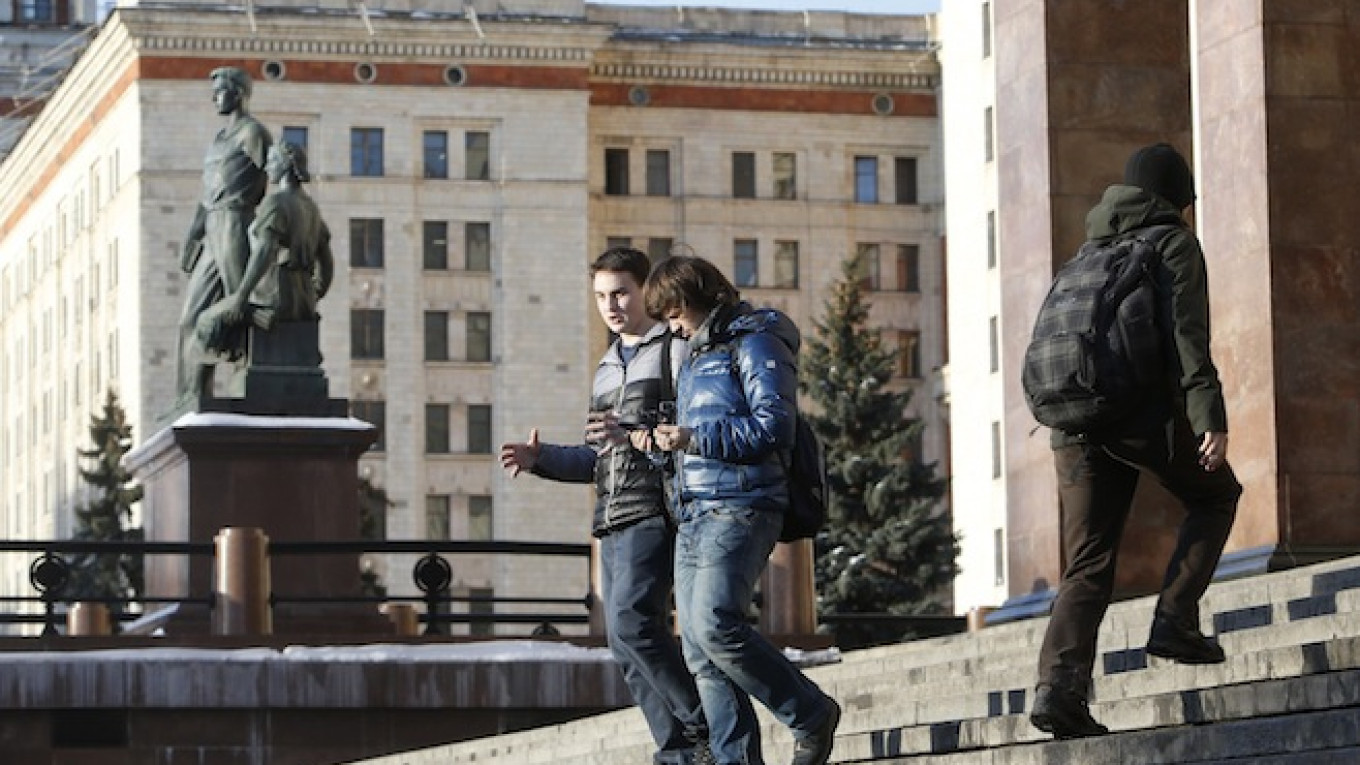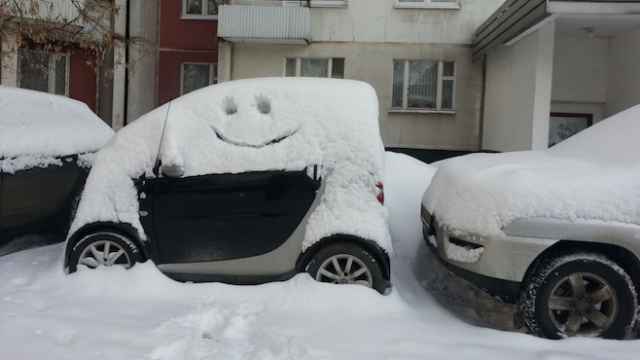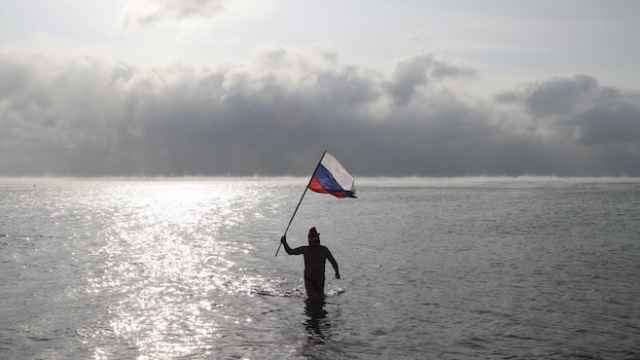Alexandra Kartokhina always dreamed of studying in a big city. She even went to a Russian school in her native Crimea to help her achieve her ambition of studying in St. Petersburg.
But now that dream has been tainted. After winning a place at a university in Russia's second city on an equal footing with other students, she has to deal with "the eternal squabbles" over accusations that Crimeans are stealing "Russian" places.
Nearly a year after Russia took Crimea from Ukraine, Alexandra's experiences point to some of the first signs of resentment among Russians, potentially complicating President Vladimir Putin's calculation over Ukraine.
Trying to get places in Russia's dwindling number of good universities is competitive and often expensive. Trying to get a "budget place", or free tuition, is even more challenging, with parents often spending huge sums on tutoring their children to get the required grades or number of points.
With the economy heading for recession and education targeted by budget cuts, the stream of students from Crimea is adding to simmering anger over how much Russians are having to pay for annexing the peninsula from Ukraine in March last year.
"In many universities where I was going to apply, they've reduced the number of budget places because of Crimean students and now there's no chance of getting one," Katya, an applicant from Moscow, told a local magazine, echoing several people who did not want to be quoted for fear of being seen as unpatriotic.
For Kartokhina, the criticism is unjust, especially after she studied for, and passed Russia's unified state exam to gain entry to the university of her choice — unlike most other students in Crimea who were schooled in the Ukrainian system.
She says Crimean students' special status will be short-lived and was necessary to allow school-leavers to go to universities without having to repeat years to take the exam.
"As for these eternal squabbles that students from Crimea are taking university places from Russians, I can say only that it's completely absurd," said Kartokhina, pointing out that the places for Crimean students were in addition to, rather than part of, those places set aside for Russians.
"And let me say that they have only allocated budgeted places for Crimean students to some universities and in some specialisms, which are often not the best. In some universities, questions about quotas are met with a shrug and a puzzled look."
Euphoria Fades
Since March 18 when President Vladimir Putin hailed what he said was the historic homecoming of Crimea, patriotism still runs deep, with more than 80 percent of Russians supporting the move in opinion polls.
Moscow has moved swiftly to stamp its authority on the peninsula, tempering the instability of overthrowing all Crimea's old Ukrainian systems with vote-winning policies such as increasing pensions and public-sector wages.
The speed has been blistering.
Officials say Crimea should become fully integrated into the Russian system next year. Meanwhile Russia's Education Ministry said universities with more than 50 budget, or free tuition, places will offer Crimean students between 2 and 5 percent of them.
But the cost has been high.
Western sanctions imposed on Moscow for Crimea, and falling oil prices, have pierced the economic stability Putin has overseen since coming to power in 2000. Russia is sliding into recession, food prices are shooting up and the country saw net capital flight of $151.5 billion last year, a record high.
With the budget facing a shortfall of $45 billion this year, mainly because of lower prices for Russia's main export oil, cuts have to be made, and education is a prime target.
Putin has vowed to protect defense and has promised to fulfill generous social spending, particularly for Russia's millions of pensioners who form a large pool of support the Russian leader cannot afford to lose.
But it is clear that education, as in earlier crises, will "live with severe budget constraints", said Vladimir Knyaginin, director of Center for Strategic Research North-West. And that would be from an already low level.
Russia spent about 4 percent of gross domestic product on education in 2014, lower than the United States with 5.1 percent, after years of neglect since the fall of the Soviet Union more than 20 years ago, when education was, much like defense, seen as a weapon in the Cold War and well funded.
Despite high levels of university education among its adult population, Russia has one of the worst literacy scores, and many employers criticize institutions for allowing students to buy their diplomas with little or no studying required.
Yaroslavl Kuzminov, rector of the Higher School of Economics in Moscow, said Russia has long suffered from low and ineffective spending.
"Spending 60,000 rubles per student a year in higher education is absurd. It is necessary, as it has been for 20 years, to double it," he told a conference last month, adding that the budget needed another 150-200 billion rubles a year.
But with expenditure further curtailed, the race for the few places at good universities will get fiercer. And Crimean students, many of whom are queuing up to head to the "mainland", may face more criticism.
"Almost all the students in my year came to universities in Russia," Kartokhina said.
"But I have to say that it wasn't all about Crimea becoming part of Russia, it was their decision before then... And it's interesting, several even stayed in Crimea after unification."
A Message from The Moscow Times:
Dear readers,
We are facing unprecedented challenges. Russia's Prosecutor General's Office has designated The Moscow Times as an "undesirable" organization, criminalizing our work and putting our staff at risk of prosecution. This follows our earlier unjust labeling as a "foreign agent."
These actions are direct attempts to silence independent journalism in Russia. The authorities claim our work "discredits the decisions of the Russian leadership." We see things differently: we strive to provide accurate, unbiased reporting on Russia.
We, the journalists of The Moscow Times, refuse to be silenced. But to continue our work, we need your help.
Your support, no matter how small, makes a world of difference. If you can, please support us monthly starting from just $2. It's quick to set up, and every contribution makes a significant impact.
By supporting The Moscow Times, you're defending open, independent journalism in the face of repression. Thank you for standing with us.
Remind me later.






